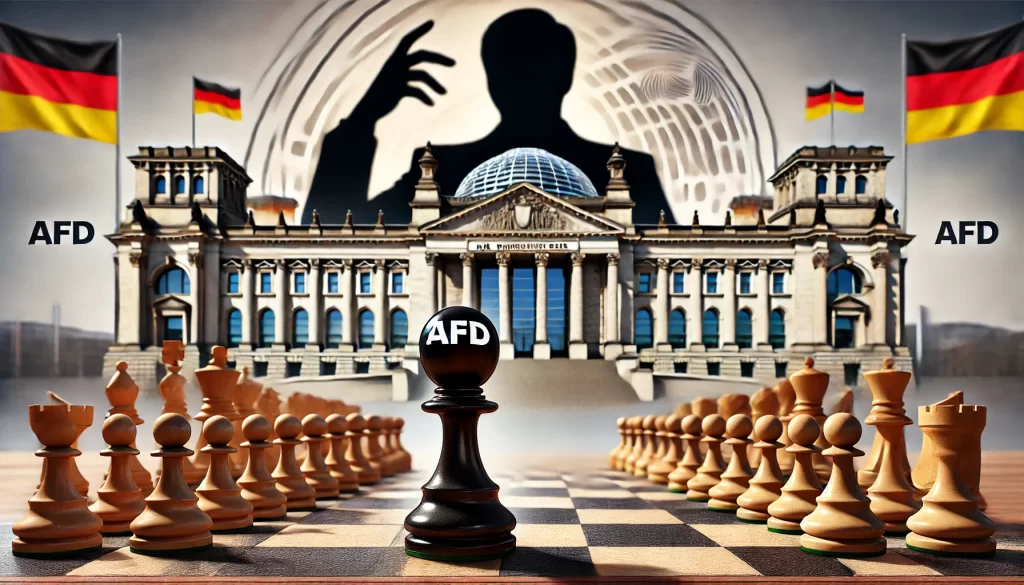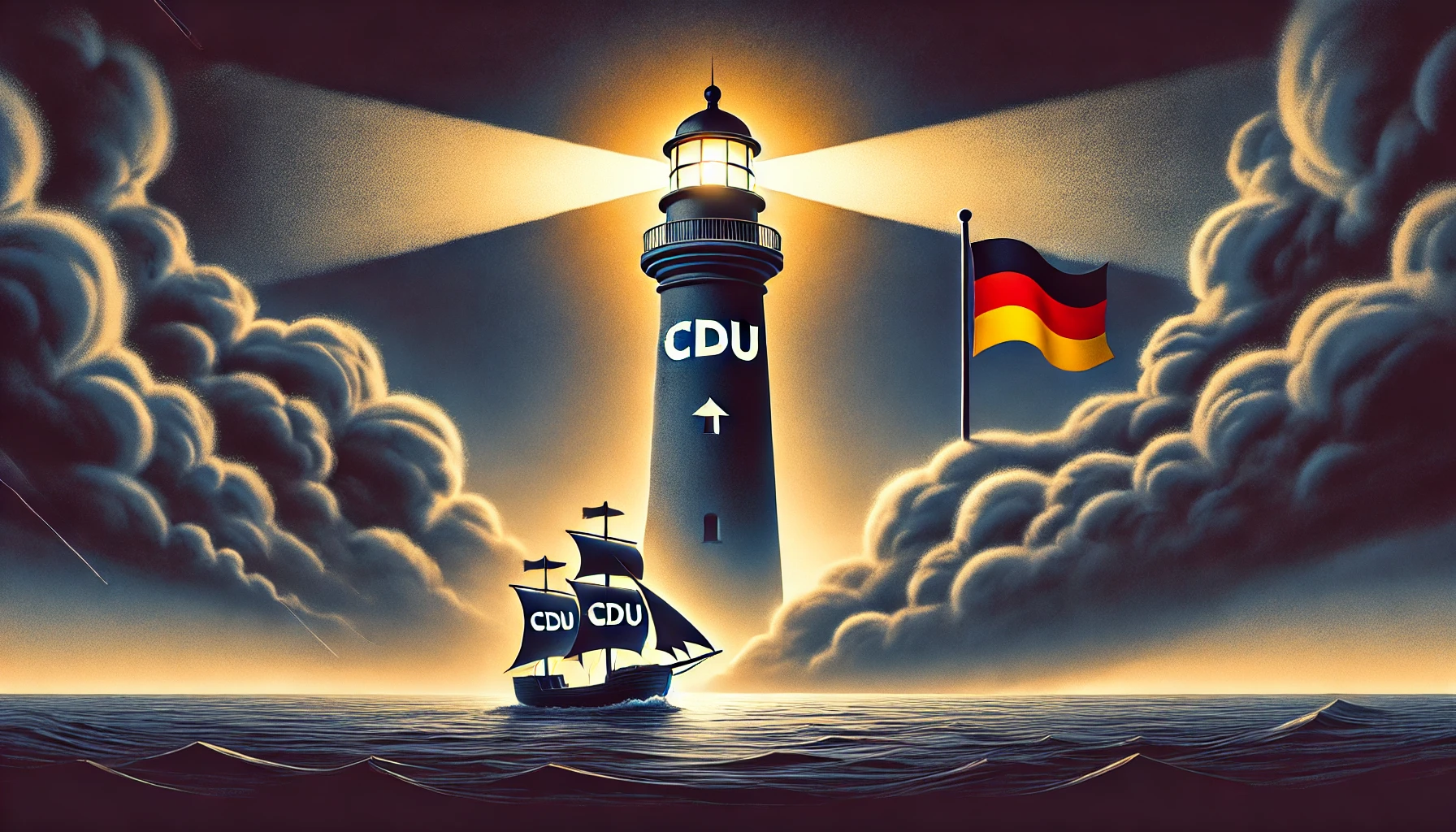Germany has held a national election, and the results show big changes in the country’s political landscape. The center-right Christian Democratic Union (CDU), led by Friedrich Merz, won the most votes, making him the likely next chancellor. However, the far-right party, Alternative for Germany (AfD), made historic gains, finishing in second place.
Election Results and Political Shifts
The CDU, along with its sister party, the Christian Social Union (CSU), won 28.6% of the vote. The AfD received 20.8%, which is its highest result ever in a national election. This makes the party a powerful force in German politics, though most other parties refuse to work with them. Meanwhile, Chancellor Olaf Scholz’s Social Democratic Party (SPD) had its worst performance since World War II, receiving only 16.4% of the vote.
The election happened earlier than expected because the ruling coalition government collapsed in November. Many voters were unhappy with the economy and rising immigration. The CDU focused on these concerns during the campaign, promising stricter immigration policies and stronger economic leadership.
Merz’s Plans for Europe
After the election, Merz spoke about his vision for Germany and Europe. He said that Europe should become less dependent on the United States and strengthen its own power. He also criticized the U.S. government, saying, “The interventions from Washington were no less dramatic and drastic and ultimately outrageous than the interventions we have seen from Moscow.”
Merz promised to make Europe stronger and more independent. “My absolute priority will be to strengthen Europe as quickly as possible so that, step by step, we can really achieve independence from the USA.” He also reacted to recent statements from U.S. leaders about European affairs, saying that some Americans “are largely indifferent to the fate of Europe.”

AfD’s Growing Power and Challenges
The AfD’s strong second-place finish shows that many voters support its ideas, which include strict immigration laws and skepticism toward the European Union. Its leaders, Alice Weidel and Tino Chrupalla, celebrated the results. “We have achieved something historic today,” Chrupalla said. Weidel argued that her party should have a chance to govern, saying, “Firewalls are undemocratic.”
Even though the AfD performed well, it will likely not be part of the new government. Most other parties, including the CDU, have promised not to work with them.
Difficult Path to a New Government
Germany’s system requires coalition governments, which means Merz must find partners to form a majority in parliament. One possibility is working with the SPD or the Greens, though this could lead to difficult negotiations. The Greens received 11.6% of the vote, while the left-wing party Die Linke got 8.8%.
Merz hopes to form a government by Easter, but the process could take weeks. He acknowledged the challenge ahead, saying, “I am aware of the responsibility. I am also aware of the scale of the task that now lies ahead of us.”
This article is based on the following articles:
https://www.cnn.com/2025/02/23/europe/german-election-results-cdu-afd-intl/index.html
https://www.npr.org/2025/02/23/nx-s1-5306403/center-right-germany-election-results-far-right-afd

Background Information
1. Germany’s Government
Germany is a democratic country with a parliamentary system, which means that instead of directly electing a president, citizens vote for political parties, and those parties form a government. The leader of the party with the most support usually becomes the chancellor, who is similar to a prime minister and is the head of the government.
The German parliament, called the Bundestag, is where elected officials make laws and decisions. However, unlike in the United States, where one party can win and govern alone, in Germany, political parties usually need to form coalitions (partnerships) to govern because no single party gets enough votes to have complete control.
2. Political Parties in Germany
Germany has several major political parties that represent different ideas. Here are the key parties involved in this election:
- Christian Democratic Union (CDU) / Christian Social Union (CSU): This center-right party is conservative and supports business-friendly policies, a strong European Union, and stricter immigration rules. The CDU and CSU work together as sister parties, with the CSU mainly representing the state of Bavaria. The CDU’s leader, Friedrich Merz, won this election.
- Social Democratic Party (SPD): This center-left party focuses on workers’ rights, social programs, and economic fairness. It was the ruling party before this election, but it lost a lot of support.
- Alternative for Germany (AfD): This far-right party strongly opposes immigration and the European Union. It gained significant votes in this election but is considered controversial because of its nationalist views.
- The Greens: This party focuses on environmental policies, climate change, and social justice. It was part of the previous government but did not perform well in this election.
- Die Linke (The Left Party): This socialist party supports wealth redistribution, government social programs, and reducing Germany’s military role in global affairs.
- Free Democratic Party (FDP): A pro-business party that supports free markets and lower taxes.
Because Germany’s system requires coalition governments, parties must negotiate and compromise to form a ruling majority.
3. Why Was This Election Important?
This election was unexpected because it happened seven months earlier than scheduled. It was called a snap election, which means it was held early due to a crisis in the ruling government. The previous government, led by Chancellor Olaf Scholz, collapsed because the coalition parties could not agree on how to handle major issues such as the economy and immigration.
The results of this election are important because they show a major shift in public opinion. Many voters were unhappy with how the country was being run, leading to increased support for conservative and far-right parties, which promise stricter immigration policies and a stronger national identity.
4. Key Issues in the Election
Several important topics influenced how Germans voted in this election:
- The Economy: Germany is Europe’s largest economy, but it has struggled in recent years with slow growth, inflation, and high energy prices. Many voters were frustrated by economic stagnation and wanted change.
- Immigration: Germany has accepted many immigrants and refugees over the past decade, particularly from Syria, Afghanistan, and other crisis areas. Some Germans worry about how immigration affects jobs, housing, and social services. The AfD used this concern to gain more support by pushing for stricter immigration laws.
- Germany’s Role in Europe and the World: Germany is a key member of the European Union (EU) and NATO, which is an alliance of countries that work together for security. Some politicians, including Friedrich Merz, have argued that Europe should be less dependent on the United States and take a stronger leadership role on its own.
- Relations with the United States: In the past, Germany and the U.S. had a close relationship, but recent disagreements over trade, military spending, and foreign policy have created tensions. Merz has said that Europe should become more independent from the U.S., especially after recent political shifts in America.
- The Rise of Far-Right Politics: The AfD’s success is historic because far-right parties have not been this popular in Germany since World War II. This worries many Germans who fear a return to nationalist politics, which led to problems in the past.
5. Germany’s History with Democracy
Understanding Germany’s past helps explain why the results of this election are significant. Germany was once led by a dictator, Adolf Hitler, during World War II (1939-1945). After the war, Germany was divided into two separate countries: West Germany, which was democratic, and East Germany, which was controlled by the Soviet Union. In 1990, Germany was reunified into one country.
Since then, Germany has been a strong democracy, but it has strict rules to prevent extremist political movements from gaining power again. That is why many parties refuse to work with the AfD, which has been accused of having extreme nationalist views.
6. What Happens Next?
Even though Friedrich Merz and the CDU won the most votes, they do not have enough seats to govern alone. This means Merz must form a coalition government by working with other parties.
This process could take weeks or even months because different parties have different ideas about how to run the country. If the CDU and other centrist parties can agree on a plan, Merz will officially become the next chancellor.
Meanwhile, the AfD will not be part of the government, but its strong performance means it will have more influence in German politics moving forward.

Debate/Essay Questions
- Does the rise of the far-right AfD reflect legitimate concerns from voters, or is it a dangerous shift toward nationalism?
Please subscribe to Insight Fortnight, our biweekly newsletter!
